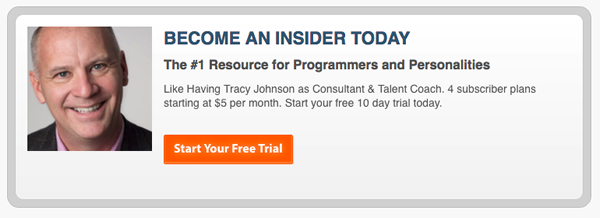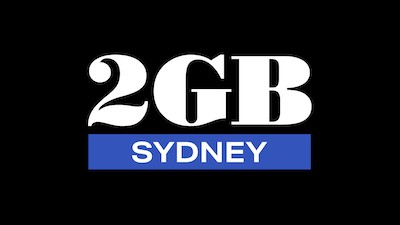11 must-haves for a strong personality brand in radio

A strong personal brand is one of the most important things radio personalities must develop, but it takes a considerable amount of time, attention and effort. Just because you have a radio show doesn’t mean your personality brand will grow merely because you’re being heard.
This goes for all personalities on all shows, including solo performers and team shows.
Building a personal brand is like building a business.The first step is to identify a target audience, discover the best marketing methods, and relentlessly work to deliver personality brand values that will appeal to the audience.
This is a key to advance through the 5 Stages of Personality Success.
Building Blocks of a Personal Brand
A strong personality brand makes it much easier to connect with listeners, not to mention clients, advertisers and online followers. All are important audiences for an air personality that depends on developing multiple verticals of promotion and revenue.
But to get to the point where your brand can pay off, you must start with a solid foundation. This requires thought and careful planning.
Here are the things you’ll need to have in place as you work to develop your personal brand
Focal Point
Personalities working to build a personal brand typically want to be known as specialists in some area. One of the steps when creating your personal brand profile is to identify the one thing or two things that define what you want to be known for.
If you haven’t done this yet, do it now! It’s a fundamental step in building a personal brand. If you don’t know what your primary appeal is, you’ll have a hard time getting past Stage 1 (Introduction) or Stage 2 (Familiarity) in the Personality Success Path.
An Elevator Pitch
You’ve probably heard the term “elevator pitch”, meaning that if you’re riding with someone in an elevator, sell your pitch before the elevator reaches their floor and they step off. That leaves about 30 seconds to show how your brand matters.
Can you condense your brand down into a short pitch that’s clear and gets the point across?
The same brief statement can be utilized throughout social channels and online bios to help followers and potential listeners best understand who you are and what you bring to the table.
Make a list of things that make you valuable, and don’t be afraid to go into great detail. Once you have the information down, start trimming, and keep trimming until you get it down to a strong, impacting statement.
The Bert Show is one of the best positioned and clearly branded shows in the world. Their elevator pitch is tight and can be delivered in seconds:
Real. Funny.
Expanding on those two key words: The Bert Show is a cast of three main characters that relate to young adults living a young, active life through observation,humourr and personal stories.
This will be an important tool in your personal brand toolbox.
A USP
Your unique selling proposition (USP) goes hand in hand with the elevator pitch. This is what sets your personality apart from others. If there are 2,000 other entertainers (and there are far more than that) offering the same basic proposition, why should someone choose you?
Why should your audience pay attention to you at the expense of all others? Not just other air talent, but other personalities competing for their entertainment attention.
What unique value do you offer that they can’t find with anyone else?
Your USP should be a succinct, single-sentence statement of who you are, your greatest strength, and the major benefit your audience will derive from it.
Perhaps your area of expertise is exploring, solving or just discussing relationship issues. Or maybe it’s that one single feature that is a true can’t miss a moment on your show each hour, such as Prank Phone Calls or Second Date Update.
A Clearly Defined Target
Defining personality traits is only part of the journey. Building a brand is useless unless you’re targeting the right people. Most personalities have never thought about their audience in enough depth to demonstrate their personality in a way that becomes meaningful to the target.
You have to define your audience so that all content you create (on-air and off) is relevant, gets attention and turns into revenue opportunities (and ratings).
When you know who you are for, and who you are NOT for, it gives you clarity in purpose. Without a target, you’re just throwing darts, hoping for the best.
When you know your audience, you can:
- Create valuable content specific to their interests
- Find brand advocates who will embrace your message and help spread it for you
- Identify the best ways to engage your audience
- Know where to find them
Defining an audience takes time and research, but without a clearly defined audience, you’ll never grow your brand. A great place to start is building a composite listener profile, as explained in the webinar on demand Know Your Audience.
Thirst For Learning
To remain relevant, maintain the attitude of a constant learner, no matter how much experience and success you gain.
Tune in, listen, and stay up-to-date with industry trends.
If you fail to stay relevant, people will stop paying attention to you.
It never hurts to learn new things, develop new skills, and expand your knowledge. Here are three things every personality should do:
- Go to Don Anthony’s Morning Show Boot Camp.
- Listen to and learn from other shows.
- Become an Insider and get constantly updated advice and training.
A Strategy For Promotion
Promotion is nearly as important as content. Develop a strategy for how to make your brand famous. It doesn’t need to be as robust as a marketing strategy for a major brand, but it’s still a good idea to create a documented marketing plan you can follow.
This should include (but isn’t limited to):
- Website development, creative and management
- Social media deployment and posting schedule. Which platforms? How often?
- Content marketing strategy: Promoting a blog, podcasts, audio on demand.
- Video strategy for expanding your brand online and via social media
- SEO and link building strategy with tactics to improve visibility;
- Community engagement strategy for local sites and potential marketing partners.
To start, conduct a personal brand audit. There’s a ton of online information about you already, since you’re a public figure. But you should be managing the results when your name is searched. Find out what’s out there now. Then start a plan to manage and change it.
This isn’t a one-time exercise. Schedule routine reviews of your personal brand to monitor how you appear on the web ad social media.
Your Own Website
Every personality needs a website to manage their brand. Maybe your company won’t allow you to promote it, but build it anyway. When you change stations or markets, what happens to your online profile? If you’ve managed it yourself, nothing. But if it’s completely in the hands of others (your station or company), you start over when you move.
On the site, show off your expertise and work you’ve done. A branded website is another source of content that will show up at the top of the search results when people search information about you, especially if it’s populated with great content.
Try to use a lot of video on your personal site. It’s a great way to rank higher and get more attention.
Having a website helps keep control of search results and brand images rather than allowing third-party sites to shape your online image.
A Story
The strongest personal brands are carried by a story. When we build personality brand profiles for clients, the personality receives a thorough profile, plus a synopsis that defines who they are. This can easily turn into a story that helps define the brand.
Think about some of the most well-known personal brands like Kim Kardashian, Mark Cuban, Beyonce, Warren Buffet, or Tom Brady.
In every case, their stories are well known and narratives add tremendous weight to their personality brand, ultimately defining how we see them.
If you specialize in more than one area or have a series of things you’re passionate about, a narrative becomes even more important.
A Consistent Look
Brands often use style guides to maintain consistency in their logos, fonts, and colors. Your style guide may even include a dress code to manage how you appear in public.
Consider develop a personal brand logo that will translate to many uses and sizes. Create it in specific colors that define your brand. Maybe your station won’t allow you to use it now. That’s okay. You can use it on your own website and personal social media sites.
Everything you do contributes to a personal brand. Create a personal style guide similar to what the brands use. This way you have a consistent representation of your personal brand.
This should include the way you dress, carry yourself, behave with others, and even write and respond to emails.
Competitive Awareness
Personal brand building isn’t a popularity contest, but it does pay to know where you stand in the crowd.
Occasionally, you should collect some of the key metrics around your brand so you can pivot and act accordingly. If you enter Air Personality (Your Market), do you rate? How about Top Talent (Market)? Radio hosts (Market)? Funny Personalities (Market)? Who shows up with positive attributes?
Don’t copy others, but it’s worth studying why they may be succeeding in some ways. A competitive evaluation provides insight to take ideas and do it 10 times better.
Publicity Photos
It’s great if the station pays for your photo session. But if they don’t, do it yourself. It’s not that expensive. Photos are one of the three promotional items every personality needs.
Take pictures that represent the personality you’re trying to portray, and use those images across social channels and websites. And, pick the one that best represents your character traits to use in small printed photos that can be handed out at appearances and events. Be sure to leave room on the photo to personalize an autograph (don’t do a pre-printed signature).
Get a bunch of different poses with various changes of clothing. This gives you more ways to represent your personality.
Publicity photos help you be more easily recognizable. The more the audience can feel they know you, the better chance they’ll consider you a friend.
As your appearance changes (and, yes, you do age), update the head shots and publicity photos.
Conclusion
A personal brand is how the world sees you. That’s why it’s important to actively manage and polish the brand.
Invest in these 11 elements to enhance your career. Be proactive. It works!
Tracy Johnson specializes in radio talent coaching, radio consulting for programming and promotions and developing digital strategies for brands.



